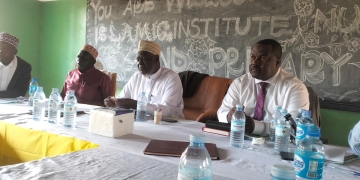
In a significant development, the Anti-Corruption Court in Uganda has released legislators Michael Mawanda and Paul Akamba on bail, pending their trial in a high-profile corruption case. The two MPs, along with city lawyer Julius Kirya Taitankoko, were granted bail on Friday under stringent conditions.
The case, which has garnered widespread attention, involves allegations of corruption related to cooperative war loss compensation, with the accused facing charges of embezzling Shs7 billion. Mawanda, who represents Igara East, and Akamba, representing Busiki County, were arrested in June and have been in custody since then.
The bail conditions include a cash bail of Shs35 million for each accused, a non-cash bond of Shs50 million for their sureties, and the surrender of their passports to the court. Additionally, they must report to the court registry every two weeks and refrain from interfering with witnesses or ongoing investigations.
Judge Jane Kajuga, who granted the bail, emphasized that the decision was made in line with the constitutional rights of the accused while ensuring that justice is served. The judge also warned that any violation of the bail conditions could result in its revocation.
The case has sparked controversy, with General Muhoozi Kainerugaba, the Chief of Defence Forces, criticizing Mawanda’s arrest and charges on social media. Kainerugaba claimed that Mawanda was being persecuted for supporting him.
The trial is set to begin in November, and the accused face serious charges that could result in significant penalties if convicted. The case has highlighted concerns about corruption and accountability in Uganda, and its outcome is being closely watched by the public and civil society organizations.”










